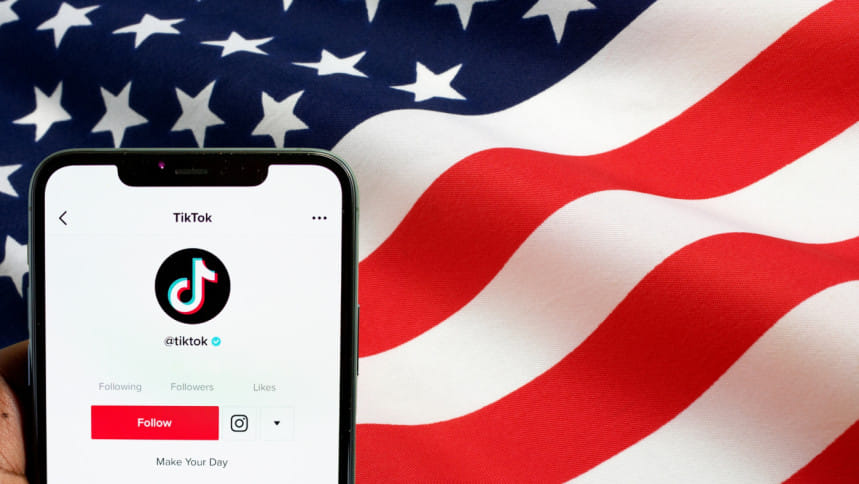Why is TikTok considered a US national threat?

The popular video-sharing platform TikTok is currently being considered a national security threat by the US. Key reasons behind this lie in the US deeming TikTok as a misinformative media platform that collects user data and uses censorship to protect the Chinese Communist party. The five main reasons are listed below:
Data sharing
TikTok, like its rivals Instagram, Snapchat and YouTube, thrives on data and there seems to be no limit to how much young users are willing to share about themselves on the super addictive app. TikTok's critics worry that all this information is being processed by a Chinese company in China where the Communist Party reigns supreme. But some experts believe the threat is overblown and that nefarious actors can make their way to the troves of data no matter who owns the platform and where it is based.
"If we're talking about US citizen data, it's the Wild West," said Justin Sherman, a senior fellow at Duke University's Sanford School of Public Policy. "There's very little regulation, companies collect tons of data all the time, whether they're foreign companies or US companies." Tiktok says it has undertaken to fully move the data of American users to US-only servers in a project known as 'Project Texas'.
Spying
TikTok, like all apps, potentially opens access to a user's entire phone.
"Anytime you have an app on the phone, there's the potential for using that app to bridge access to other things on the phone," said Michael Daniel, CEO of Cyber Threat Alliance.
This could include "surreptitiously turning on the microphone or the camera of the device without the user being even aware," added Daniel, a former cybersecurity coordinator at the US National Security Council. Etay Maor, senior director of security strategy at Cato Networks, pointed to Pegasus, software created by an Israeli tech firm that was used by governments around the world to spy on critics and opponents. "Maybe with TikTok we are just clicking and installing the Chinese version of Pegasus on our devices... I think that is the worry of the US government," Maor said.
Censorship
Another potential threat mentioned by cybersecurity experts is the ability of the Chinese government to censor content on TikTok to defend the priorities of the Communist Party.
"The idea is that the Chinese government would eventually tell TikTok outside of China that you will not show anything that supports Tibet or Taiwan and thereby shape the information environment," said Daniel.
Tiktok insists that it has never intervened on content in ways to satisfy the Chinese government, but given the level of censorship that prevails in China, analysts warn that the threat for Beijing to lean on TikTok exists.
"If you look at the way the Chinese government has censored information, has suppressed journalism and things of that nature at home, it's really not at all far-fetched to say there's a risk associated with the same thing happening on TikTok elsewhere," said Sherman.
Misinformation
Another fear is that the Chinese government could use TikTok as a means to disrupt US society in a replay of the online campaigns waged by Russia in 2016 ahead of the American presidential election.
Already, research published by Global Witness and the Cybersecurity for Democracy team at New York University suggested TikTok failed to filter large volumes of election misinformation in the weeks leading up to the US midterm elections last month.
In the experiment, TikTok "performed the worst out of all of the platforms tested," the researchers found. In response, TikTok has introduced safety measures related to election content and required government and politician accounts to be verified.
Just... China?
Some experts wonder if TikTok can do anything to satisfy concerns given its origins in China, especially with the Republicans retaking the US House of Representatives in January. Most of the arguments against TikTok have been coming from the Republican Party, which has a history of being tougher on Beijing than the Democrats.
Republicans are also putting pressure on Democrats as US President Joe Biden negotiates a long-term security arrangement for the app to keep operating under Chinese ownership in the United States. According to Politico, the Biden administration is divided over whether to force the Chinese owner of TikTok to divest from its US operations, casting doubt on the proposed compromise.

 For all latest news, follow The Daily Star's Google News channel.
For all latest news, follow The Daily Star's Google News channel. 







Comments